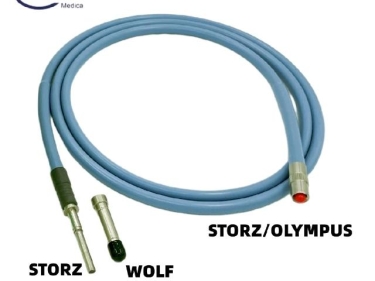Why is Trade Finance Important to SMEs?
Is your SME missing out on the benefits of Trade Finance? Discover why Trade Finance is critical to the success of SMEs and how it can help your business grow.

Small and medium-sized businesses (SMEs) are significant to most economies, especially developing countries. SMEs make up the majority of enterprises globally and play an important role in employment creation and the expansion of the global economy. They account for more than 50% of all jobs globally and roughly 90% of all enterprises. In rising economies, the share of formal SMEs in GDP can reach 40%. When informal SMEs are taken into account, these figures are substantially higher. For many governments worldwide, SME growth is a top priority.
However, access to finance is a crucial constraint to SME growth. It is the second most cited obstacle facing SMEs in growing their businesses in emerging markets and developing countries. SMEs are less likely to be able to obtain bank loans than large firms; instead, they rely on internal funds, or cash from friends and family, to launch and initially run their enterprises.
International trade finance companies offer alternative financing solutions tailored to meet SMEs' needs. Find below why international trade finance is essential for small and mid-sized businesses.
Banks Often Do Not Cater to SME Needs
Without sufficient security, the majority of banks won't loan SMEs. An SME's line of credit frequently determines this security. The ability of an SME to maintain a healthy cash flow and pursue expansion goals is commonly constrained by this procedure.
To increase cash flow and lessen exposure to trade risks, trade finance offers more adaptable alternatives. Instead of the exporter's financials, funding is determined by the client's creditworthiness. Trade financing services do not appear as debt on an exporter's balance sheet, in contrast to bank loans. Usually, exporters can anticipate receiving payment two days after submitting an invoice. Scalable finance options that expand alongside SME enterprises can be advantageous. Longer payment terms also give purchasers more outstanding working capital to keep completing purchases.
Trade Finance Reduces Payment Risks
International transactions have a higher payment risk for importers and exporters than local trade. If the importer will receive the items as anticipated is unknown. Similarly, the exporter is still determining whether they will get paid in full and on schedule. The following are some elements that may cause payment losses and delays.
• The importer's credit rating and history of payment/non-payment.
• Exchange rate risks due to currency fluctuations.
• Political events that impact foreign economies.
• The inability to meet changing market requirements.
• Changes in transit costs.
Providers of international trade financing services give a Letter of Credit to handle these payment concerns. Payment for the items is guaranteed by this document as soon as the necessary shipping documentation is in order. A trade financing intermediary will also manage the SME's collections while keeping an eye on their clients' creditworthiness.
Working Capital is Essential for SME Growth
Self-financing can squander money better used to invest in fresh business opportunities. Similarly, bank loans appear as debt on balance sheets and harm a company's bottom line. These financial restrictions are lifted by trade finance, allowing SMEs to devote capital to more productive uses.

Services for trade financing can simplify processes like bookkeeping and collection. Additionally, exporters can establish and apply for trade finance services more quickly than they can for a bank loan. These automated protection services help SMEs with their concerns about foreign trade, freeing up time and working capital.
SMEs Face Challenges with International Regulations
Compliance with international regulations is one of SMEs' biggest obstacles when trying to trade internationally. Sanctions against financing terrorism (CFT) pose particular difficulties for SMEs.
Additionally, regulatory standards can vary greatly from one nation to another. Banks must rely significantly on internal resources, which are expensive and time-consuming, to stay current. Because of this, most lenders only provide these services to well-established businesses and giant corporations.
In addition to conventional credit programs, supply chain financing and export factoring are options. Regional experts who ensure adherence to local laws work for financial intermediaries who provide various kinds of finance. SMEs will also learn about services appropriate for certain exports, such as currency exchange control.
SMEs Get International Market Insights
The majority of SMEs need more experience with foreign markets. Still, with the help of qualified trade finance experts, they can learn about the compliance requirements of specific foreign needs and gain advanced market knowledge with access to services for area-specific services and currency regulation control to support their growth. In addition, banks frequently scrutinize various factors when SMEs ask for loans and lack flexible funding choices based on their company's needs. Trade finance companies provide clients with specialized solutions tailored to their needs.
Regarding trading on the global market, SMEs must first have increased cash flow and adequate working capital. International trade finance can assist SMEs in overcoming economic hardship and expanding their global operations because banks' complicated paperwork & lending procedures make it difficult for them to obtain necessary funds on schedule.
Global trade wouldn't be possible without international trade financing. Payments take time to arrive from foreign importers, and exporters can't afford to have their cash tied up in shipments. About 80% of trade worldwide relies on trade financing. These services solve short-term cash flow challenges, protect against importer insolvency, and ensure compliance with local regulations.
Join Export Portal to Achieve Success
Export Portal is dedicated to providing our users with a safe space to complete global trade transactions and all the information they need to trade confidently. We help SMEs find new markets, secure deals and grow quickly and stably. Check out our site today and gain access to all our benefits!


















Comments 1